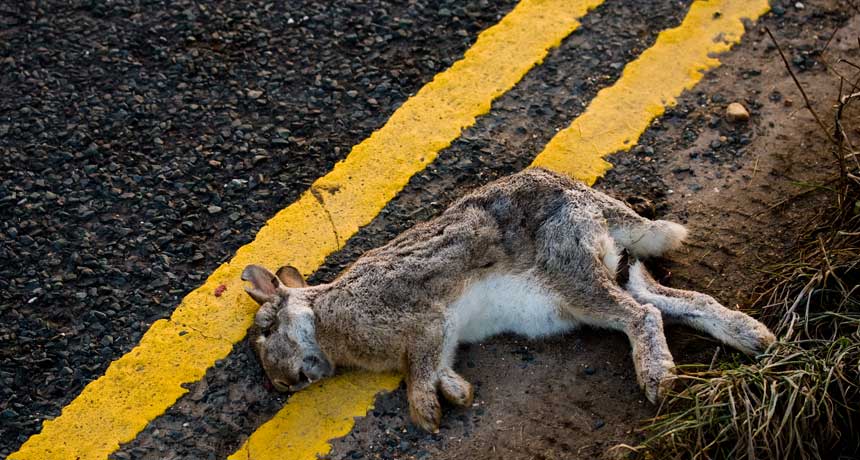Scientists Say: Taphonomy
This is the study of organisms after they die

This dead hare, a tragic roadkill victim, can tell scientists how decomposing animals contribute to their ecosystem.
vintagedept/Flickr (CC BY-NC 2.0)
This is the study of organisms after they die

This dead hare, a tragic roadkill victim, can tell scientists how decomposing animals contribute to their ecosystem.
vintagedept/Flickr (CC BY-NC 2.0)